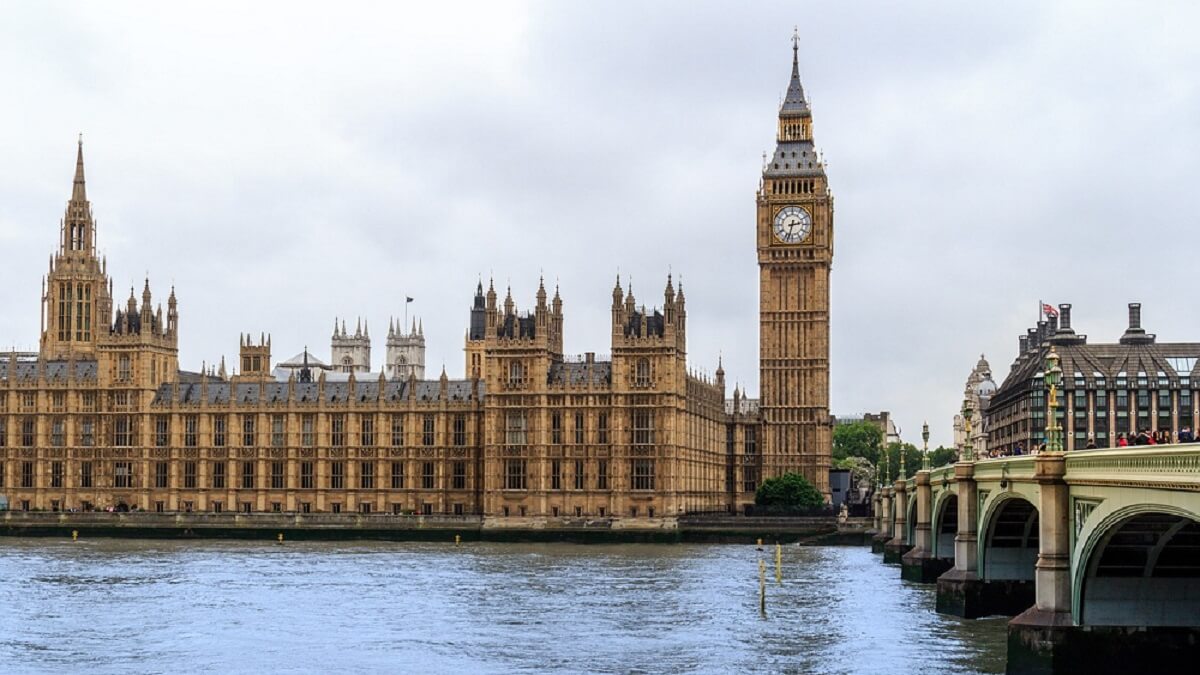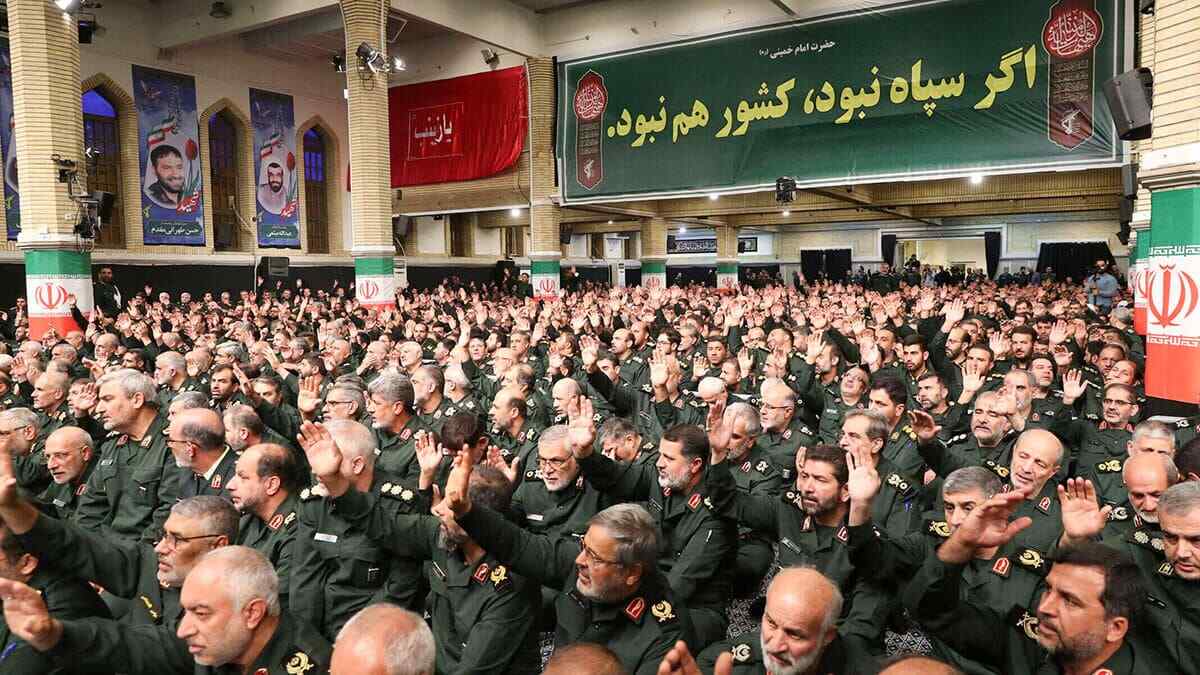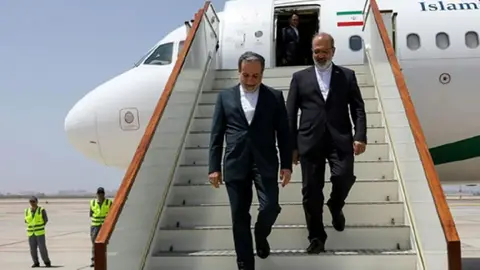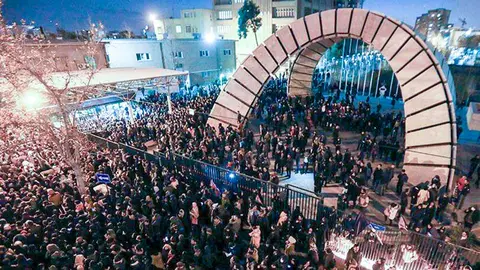Diplomatic tension between the United Kingdom and Iran

Bilateral relations between Tehran and London are being affected following the arrest of three citizens in the British capital on suspicion of espionage and preparing violent acts. The detainees were brought before Westminster Magistrates' Court on Saturday 24 May and will reappear before the Old Bailey Criminal Court on 6 June. The case has sparked disagreement between the two sides due to the procedure followed in relation to the detainees.
The accused, identified as Mostafa Sepahvand, 39, Farhad Javadi Manesh, 44, and Shapoor Qalehali Khani Noori, 55, were arrested on 3 May. According to British authorities, the three are allegedly involved in surveillance and reconnaissance activities linked to a plot to attack journalists from Iran International, a London-based Persian opposition media outlet considered a terrorist organisation by Tehran.
The Crown Prosecution Service has charged them under the National Security Act, accusing them of committing acts ‘likely to assist a foreign intelligence service’ between August 2024 and February 2025. In addition, Sepahvand faces additional charges of conducting surveillance and reconnaissance with the intention of committing serious violence against a person in the United Kingdom, while Manesh and Noori face additional charges of participating in surveillance and reconnaissance to assist another person in committing acts of serious violence.

The head of the Metropolitan Police's Counter Terrorism Command, Dominic Murphy, described the allegations as ‘extremely serious charges under the National Security Act’ and stressed that they were arrested following a ‘rapid but complex investigation.’ According to the British government, those involved arrived in the country by irregular means between 2016 and 2022, including on board small boats.
Following the formal indictment of the accused, the United Kingdom summoned the Iranian ambassador to London, Seyed Ali Mousavi, on 19 May. In a statement, the Foreign Office said that ‘the protection of national security remains our top priority and that Iran must be held accountable for its actions’.
In response, Tehran summoned the British chargé d'affaires at its embassy in Iran to lodge a formal protest. The Iranian Foreign Ministry, Abas Araqchi, denounced the arrests as ‘baseless’ and accused London of denying consular access to those arrested, warning that the United Kingdom would be ‘fully responsible’ for the consequences of what it considers ‘politically motivated actions’. In addition, it reminded the British authorities that they must guarantee due process for the detained Iranian citizens, in a statement reported by the Iranian television channel Press TV.
Following the meeting between Iranian Ambassador Ali Mousavi and Dan Jaffers, Under-Secretary of State for Security at the Home Office in the United Kingdom, it is believed that this could be a ‘false flag operation’ aimed at damaging bilateral relations. ‘There is a history of third parties bent on derailing diplomacy and provoking escalation, resorting to desperate measures, including false flag operations,’ said Iranian Foreign Minister Abbas Araqchi.
This incident comes amid growing tensions between the two countries. Last March, the UK placed Iran, its intelligence services and the Revolutionary Guards on the highest level of the Foreign Influence Register (FIRS), a programme designed to counter covert and malign activities by foreign actors. Any individual acting on behalf of governments such as Iran or Russia will have to register or face up to five years in prison when the scheme comes into force in July.

London's concern about threats from Iran is not new. MI5 chief Ken McCallum revealed in October last year that British security services had foiled at least 20 ‘potentially lethal’ attacks linked to Iran since 2022. Many of these plots targeted Iranian dissidents based in the UK.
In one of the most recent cases, in March 2024, Pouria Cerati, a journalist for Iran International, was stabbed outside his home in London. Three suspects were arrested.
Frank Ferguson, head of the Special Crime and Counter-Terrorism Division of the Crown Prosecution Service (CPS), reiterated that proceedings against the accused are ongoing and that the guarantees of due process must be respected. ‘They are entitled to a fair trial, and it is essential to avoid any reporting or commentary that could prejudice the process,’ he said.
Meanwhile, both sides — represented by Ambassador Mousavi and British Deputy Secretary of State for Security Dan Jaffers — have agreed to keep channels open to address misunderstandings. At their last meeting, both delegations agreed on ‘the importance of dialogue based on good faith’ and committed to continuing diplomatic talks.










